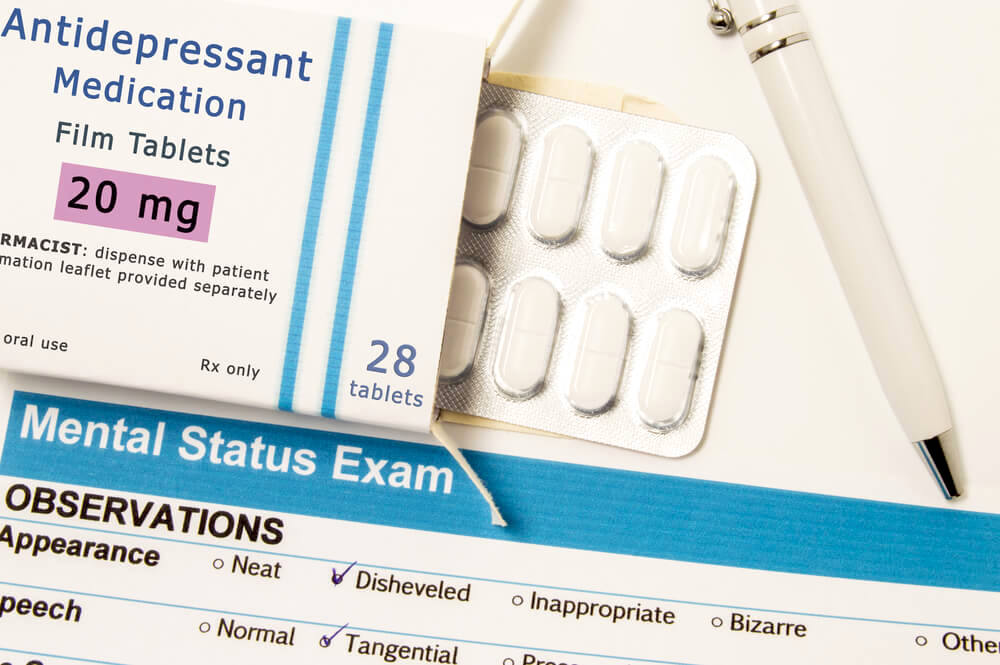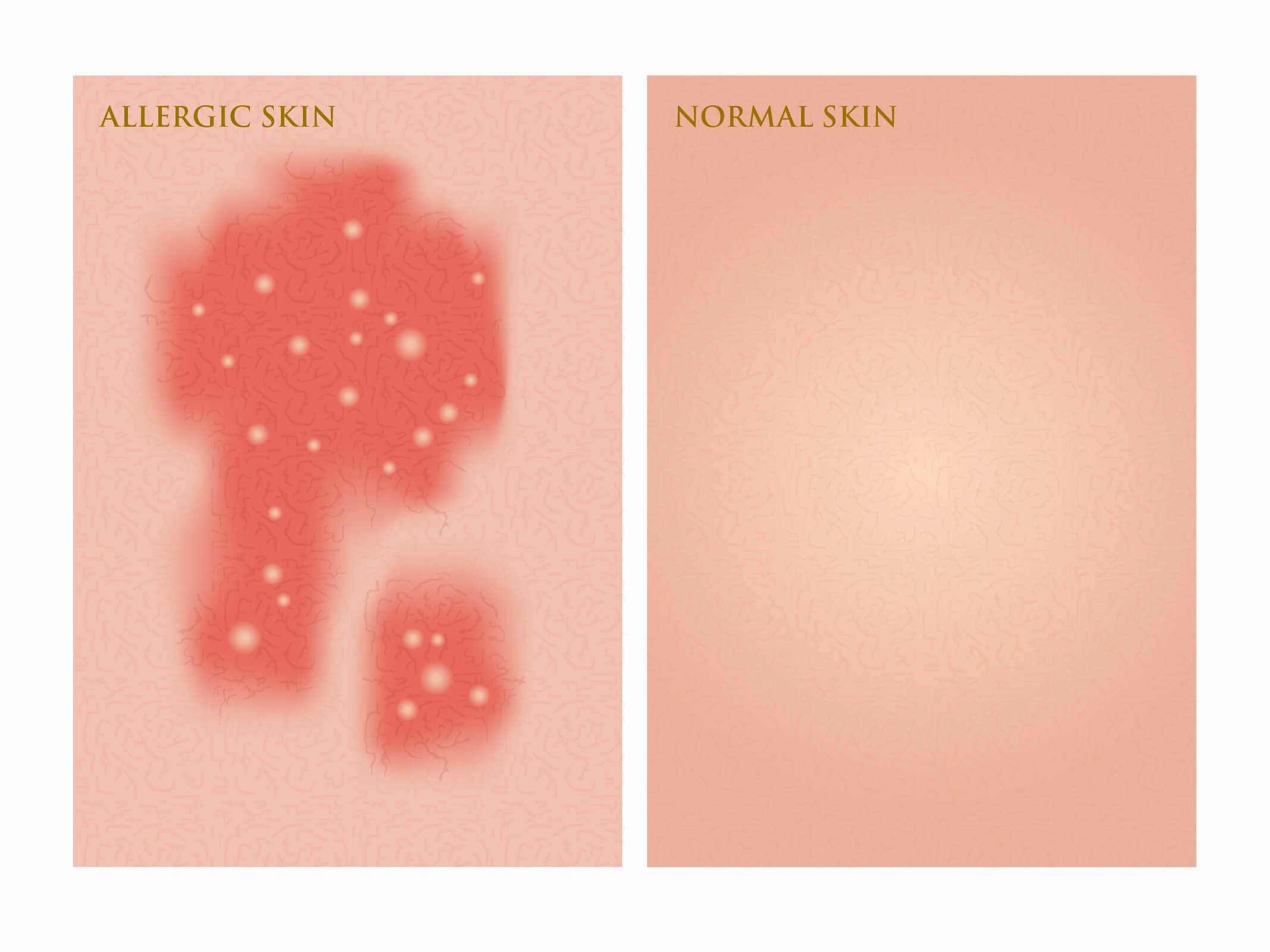How Does Medication Affect Skin Health?

Did you know that certain medications can have a significant effect on your skin?
From acne to flaky dryness to systematic rashes, read on to learn more about how medication can affect the health of your skin.
Sun Sensitivity
There are so many medications out there that list sun sensitivity as one of the side effects, but many people do not realize just quite how serious this warning is…
As you are likely well aware of, the sun can cause some serious damage to your skin, leading to everything from burns and sun spots to accelerated aging to skin cancer.
Some medications can make your skin so much more susceptible to the damaging effects of the sun, causing you to suffer from a blistering sunburn in no time at all.
Here are a few of the many medications out there that can cause your skin to become sun-sensitive:
- Antihistamines and sedative drugs, such as Benadryl and Phenergan
- Many antibiotics, such as tetracycline
- Sulfa-drugs, such as Bactrim
- Diuretics, such as Lasix
- Drugs for heart conditions, such as Captopril and Codarone
- Painkillers, such as Advil and NSAID Aleve
Wondering how exactly they can have such an effect?
Unfortunately, it is not known for sure, but researchers believe that when the drug, or one of its by-products, break down in the body, they end up absorbing the sun’s UV rays.
If you have been using a topical medication that causes sun sensitivity, then you will likely notice that a rash, or sunburn, appears on the part of your skin where you have applied the medication.
So, what can you do about it if a medication you are taking is causing sun sensitivity?
If possible, try switching to an alternative drug that does not have this side effect. In addition to doing this, you also need to exercise more caution when it comes to sun protection. This means being even more diligent about wearing, and re-applying, sunscreen each day, while ensuring that your clothing prevents UV rays from having direct contact with the sun. Try to opt for a physical, rather than chemical, sunscreen, as the chemicals within a chemical version can often exacerbate the reaction that your skin is experiencing.
If your skin is feeling especially irritated, a cool and damp dressing may help to soothe it, while oral antihistamines could also help to calm your skin’s reaction.
Acne
Just like sun sensitivity, acne is another common side effect of many medications, and it can often take people a while to actually link their increase in breakouts with the medication that they have been taking, resulting in the condition worsening.
Technically, these reactions are classed more as an acneiform drug eruption, rather than traditional acne, but the symptoms are extremely similar. Traditional acne can also be caused by drugs, although these are ones that affect hormonal levels within the body.
So, which drugs have this side effect?
Here are a few of the common ones:
- Anticonvulsants, such as Dilantin
- Corticosteroids, such as Prednisone
- Immuran
- Quinine
- Lithium
- Thyroid medications
If you know that you are taking a medication that is causing acne, but cannot stop taking that drug, then you will need to treat the issue in the same way that you would treat regular acne.
While it may be harder to treat than regular acne, it can be done…
Make sure that you are using a daily cleanser that has been designed for oily skin, and consider over-the-counter creams or gels that contain acne-fighting ingredients, such as salicylic acid or benzoyl peroxide.
Antidepressants

Antidepressants come in many different forms, and many have been proven to either cause or exacerbate certain skin conditions.
How?
Because the majority of antidepressants out there are designed to block acetylcholine in the body. This is basically a chemical messenger, also known as a neurotransmitter, which is responsible for sending and receiving signals and instructions between nerve cells.
When this function within the body is inhibited, it can cause quite a few changes within the skin, including:
- Dryness, due to less oil being produced by the skin’s oil glands
- Dehydration
- Facial flushing
- Purpura, which is a condition that manifests as purple dots on the skin
- Eczema
- Life-threatening systematic rashes, such as Stevens-Johnson syndrome
- Skin sensitivity
- Sun sensitivity
- Acne
Wondering what you can do about all of this?
Well, this depends on how well your antidepressants are working for you otherwise. If you have noticed huge improvements in your life, and are only dealing with minor skin-related side effects, such as dryness, then it may be worth just managing the problem, and taking the steps necessary to treat and heal your dry skin.
However, if your skin health is seriously suffering due to your antidepressants, then it would be worth speaking to your doctor to see if there are any other alternative medications that you can take.
There is no point being on antidepressants if they are causing you to be depressed about your skin. Since everybody will react differently to different medications, you need to find one that will really work well for all parts of your body.
Topical Steroids
Topical steroids have been prescribed for many decades now for a variety of different skin conditions, including eczema, psoriasis, rashes, poison ivy burns and more.
There are actually more than 50 different types of topical steroid medication out there, each one with different potency levels.
However, while steroids may be able to treat certain skin conditions, they can actually affect skin health in a number of other ways too…
The most common is skin atrophy, which basically refers to the thinning of the skin. This tends to be inevitable when topical steroids are used over a long period of time.
Wondering what exactly causes it?
Well, steroids suppress the growth of skin cells, as well as the production of collagen, which leads to thinner skin, as well as skin that is more fragile and transparent.
Here are a few of the other skin problems that can arise after the use of topical steroids:
- A damaged epidermal barrier – your epidermal barrier is what protects your skin, as well as your body, from the environment around you. When this barrier is damaged, your skin becomes much more susceptible to bacteria and toxins, which are able to make their way deep into your skin’s layers, causing everything from rashes to infections
- Telangiectasia – an increase in the quantity and size of blood vessels on the skin. These are not usually visible, but topical steroids can change this by making them more prolific
- Steroid rosacea – tends to show up as redness on the nose, cheeks, chin and forehead, and is caused by the telangiectasia mentioned above
- Acne – while the short term use of topical steroids can actually help to reduce acne flare-ups, longer term usage can trigger them
- Perioral dermatitis – this refers to small pimples and pustules that form on the chin and around the mouth, and is most commonly experienced by women
- Hyperpigmentation – steroids can suppress the production of melanin in the skin. Since melanin is what gives your skin its color, less melanin results in a decrease in pigmentation
- Hypertrichosis – this is when short, thin hairs begin growing on the cheek and upper lip
- Skin infections – between 16% and 43% of people who use topical steroids experience skin infections, including bacterial, yeast and fungal
So, how do you stop your steroids from affecting your skin in such a significant way?
To begin with, speak to your doctor to ensure that you are using the correct dosage of steroids, as cutting back on your dosage can often help. If this does seem to work, then you may want to consider switching to a steroid of a lower potency, or reducing the frequency at which you use it.
Multiple Sclerosis Medications
There are quite a few different medications for multiple sclerosis out there, and each one can have different effects on the skin.
When it comes to injectable medications…
There are currently eight available, and, just like with any injection, these can cause redness and welts around the injection site. An injectable drug called Zinbryta can also trigger mild to severe skin rashes, which may require a steroid-based cream in order to treat.
In terms of oral medications for multiple sclerosis…
The most common effect on your skin is facial flushing, which feels similar to what many women experience when going through menopause.
Multiple sclerosis is also treated with infusions, and these have the potential to cause rashes. Here are some of the most common MS infusion drugs that affect the skin:
- Rituxan, which is not specifically approved for MS but commonly used to treat it, often causes rashes and hives
- Tysabri usually requires a patient to remain at the medical facility for one to two hours after administration, because while it may not often cause allergic reactions, the ones that are caused end up being quite severe
- Lemtrada often causes itchy red patches to appear on the chest and arms, and has also, but very infrequently, been associated with skin cancer
Allergic Reactions to Medications

In addition to certain medications causing direct changes to your skin, many drugs can also often trigger an allergic reaction, which would manifest as a skin issue.
How does this happen?
It will usually occur when a drug first enters the body, as the immune system does not recognize it, and therefore creates antibodies to fight this potentially dangerous foreign substance.
Each time you take the drug, these antibodies jump into action, and end up releasing large amounts of histamine into the body, as this is what helps to rid the body of foreign substances.
It is this histamine that is released into the body that results in skin problems, as this is actually quite a powerful chemical, and can not only cause issues with the skin, but also the respiratory system, as well as the cardiovascular system.
Even if you do not usually suffer from allergies…
Drug allergies can still affect you, with results ranging from mild to life-threatening.
Wondering what some of the symptoms are?
Everything from hives and rashes to itchiness, while severe reactions would affect more than just your skin, causing everything from anxiety and fainting to abdominal issues.
While just about any drug could cause an allergy, these are some of the most common ones that do:
- Penicillin
- Antibiotics similar to penicillin
- Sulfa drugs
- Anticonvulsants
- Iodine, which is commonly used in contrast dyes for x-rays
Do you think you may have a drug allergy?
If so, you need to stop taking that medication immediately, and seek the advice of your doctor. Allergy skin tests can be carried out, but these can often be quite dangerous, so you will need a professional opinion to help you to decide how to move forward.
If you do end up being diagnosed with a drug allergy, it would be wise to always carry a card with you that identifies this, as this could really save your life in a potentially fatal situation. You can also purchase a bracelet or a pendant to wear, which will immediately let others around you know that you have a serious drug allergy.
Are you currently taking any medications?
If so, it would definitely be worthwhile having another read-through the instructions and warnings that came with it. While you may not usually tend to read the small print, your medication can often be the reason behind unexplained issues with your skin’s health. Even if you cannot stop taking said medication, it is still important to be aware of the causes behind any skin issues that you are experiencing, as this will help you to deal with them in the most effective way.

